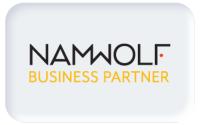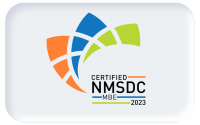It was an honor to moderate the opening session of the Master’s Conference Legal – NY last Wednesday. The expert panel of thought leaders provided terrific insight into what matters most when they select an eDiscovery service provider.
A big thank you Denise E. Backhouse of Littler Mendelson, Aulden Burcher-DuPont of Kirkland & Ellis, Michael G. Scavelli of Steptoe, and Michael Bohner of Cleary Gottlieb Steen & Hamilton – and to our wonderful audience! We covered a lot of ground, and I’m happy to share some takeaways from the session:
From Case Assessment to Vendor Selection
Understanding the major aspects of each project is key to avoiding foreseeable hurdles that may occur down the road. A number of details will inform a firm’s decision on whether to use in-house eDiscovery resources or engage a narrow pool of service providers. These details may include items such as:
- Type of matter
- Device and data types in scope
- Privacy and/or regulatory restrictions
- Geography
- Languages
- Data volume
- Timeframe
- Budget
Experienced law firms work with client and service provider stakeholders to ensure all facets of the matter are evaluated, which is particularly important with complex cases.
eDiscovery vendors often provide valuable insight into the capabilities of various technologies along with a different perspective on cost considerations that can help set client expectations.

Each case has a unique combination of challenges that may require specialized skills, technology, or customized solutions. Because of this, law firms will select the eDiscovery service provider whose offerings best align with the nuanced needs of the matter, regardless of past successes, MSA partnerships, or a client’s standing relationship with a vendor.
The Right Tools for the Right Job
Large law firms generally know the limitations of established commercial eDiscovery applications. These tools may not be best suited to handle data sourced from workplace collaboration tools, social media applications, CRM systems, audio/visual files, and structured databases. Each may require the use of specialized technology, processes, or novel approaches requiring robust engineering capabilities.
This requires firms to dedicate team members to continually evaluate new versions of existing tools, competing proprietary applications, and new service/software offerings to know which eDiscovery provider will have the right mix of technology for a given matter.
Effective vendors will help keep these team members informed of fast-developing features, particularly those focused on reducing cost, such as using Large Language Models (LLMs) and Generative AI to reduce spend on large document reviews.
Project Management Can Win the Day

The quality of project management (PM) support is always a major consideration for firms when choosing a provider, and it is also a major reason they may keep the work in-house. Attorneys need to trust the PM on many levels.
For example, clients who are new to eDiscovery need a project manager who can effectively partner with counsel in providing clear and thorough explanations about the process in a manner that alleviates what is often an unsettling experience, especially if the client’s personal data is involved.
Likewise, savvy clients will expect their PM team to be structured to provide coverage across time zones and have the ability to work independently on complex tasks. They’ll expect proactive recommendations for approaches the attorneys may have not previously considered. In both scenarios, the PM will certainly be expected to provide frequent and accurate budget and progress reports.
Law firms understand that data issues and other complexities can cause things to go awry. How the PMs manage to “right the ship,” however, is what matters most. Firms track project manager performance and will factor PM strength when selecting a provider for their next matter.
Pricing, Pricing, Pricing
Pricing is always important, but often it is not the driving factor in a firm’s selection process. Low rates may be appealing, or even necessary, for small, straightforward projects, but companies understand that expertise and greater breadth of services come at higher cost.
Law firm partners expect clarity and accuracy in the estimates they receive. If presented with a low bid only to quickly experience cost overruns, they will likely challenge the fees and consider not working with the provider again. Overall spend matters even if the firm wins the case. Proportionality is an important measure of success so a firm may request a “not to exceed” or flat-fee pricing model.
It’s worth noting that while pricing may not be “top of mind” at the start of an engagement, it often ends there as the matter endures. Firms prefer to work with vendors who provide transparency, conduct invoice reviews, and hold frequent budget discussions, which ultimately helps with their client conversations.
Conclusion
It’s clear that selecting an eDiscovery vendor involves a series of complex considerations. The selected eDiscovery vendor should not merely be a service provider. They must function as a part of the firm’s team, a dependable ally who can consistently adapt to evolving needs.
Thank you to Kevin M. Clark and Marla Mohr for organizing a very successful and enjoyable event. And, of course, thank you to Morgan, Lewis & Bockius LLP for their hospitality.

David Varacchi
Author
Share article:





